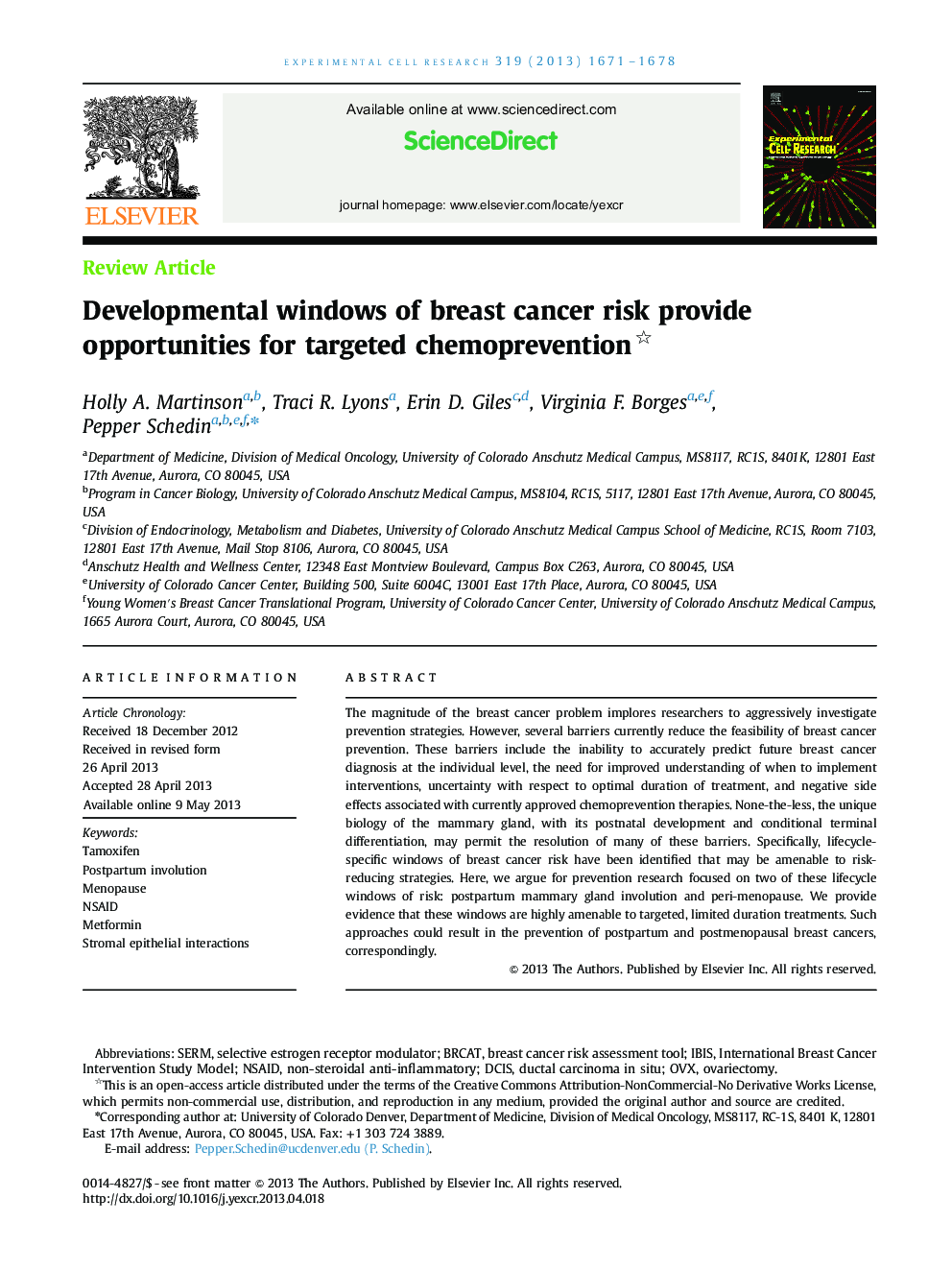| Article ID | Journal | Published Year | Pages | File Type |
|---|---|---|---|---|
| 10904310 | Experimental Cell Research | 2013 | 8 Pages |
Abstract
The magnitude of the breast cancer problem implores researchers to aggressively investigate prevention strategies. However, several barriers currently reduce the feasibility of breast cancer prevention. These barriers include the inability to accurately predict future breast cancer diagnosis at the individual level, the need for improved understanding of when to implement interventions, uncertainty with respect to optimal duration of treatment, and negative side effects associated with currently approved chemoprevention therapies. None-the-less, the unique biology of the mammary gland, with its postnatal development and conditional terminal differentiation, may permit the resolution of many of these barriers. Specifically, lifecycle-specific windows of breast cancer risk have been identified that may be amenable to risk-reducing strategies. Here, we argue for prevention research focused on two of these lifecycle windows of risk: postpartum mammary gland involution and peri-menopause. We provide evidence that these windows are highly amenable to targeted, limited duration treatments. Such approaches could result in the prevention of postpartum and postmenopausal breast cancers, correspondingly.
Keywords
Related Topics
Life Sciences
Biochemistry, Genetics and Molecular Biology
Cancer Research
Authors
Holly A. Martinson, Traci R. Lyons, Erin D. Giles, Virginia F. Borges, Pepper Schedin,
